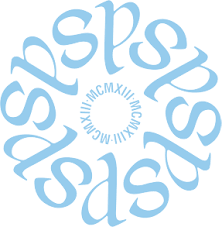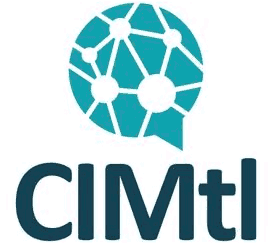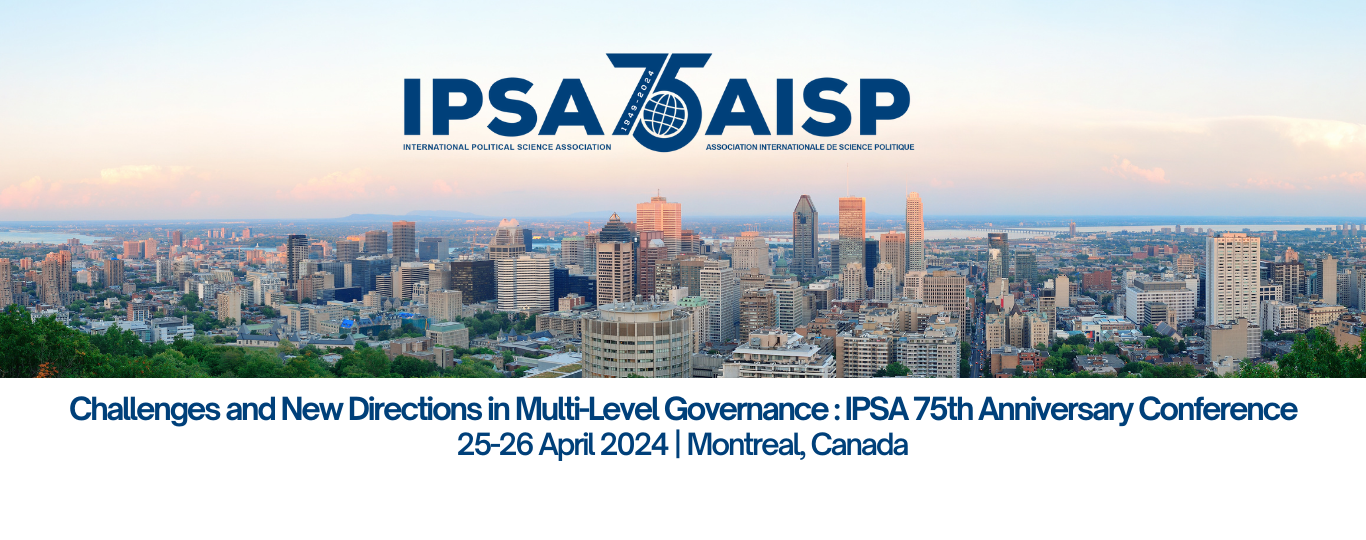
Coined in the early 1990s, the term 'multi-level governance' initially described and analyzed the new procedures displayed for the development and implementation of public policies in the European Union. The usage of the term soon spread beyond EU studies. In the contemporary definition, multi-level governance refers to changes in the structure of governance at the sub-national, state and supra-national level; it encompasses the study of a variety of actors involved in the decision-making process and in the implementation of these decisions. Nowadays, we find the term ‘multi-level governance’ in a number of subfields and topics, such as the European Union political processes, the transformations of the polity structures, federalism, international relations, and public policy or local government.
One of the premises of multi-level governance is that the nation-state is not vanishing or disappearing, but it is witnessing a role transformation in a network of actors, governmental and non-governmental from different territorial levels with which the national authorities interact, negotiate, agree, cooperate, and compete. Multi-level governance encompasses formal structural changes in political institutions at different territorial levels, but also the connections and interactions of diverse public and private actors, institutions, and their respective jurisdictions in a variety of territorial arenas of the decision-making and implementation processes. Thus, according to the multi-level governance approach, the decision-making process at various levels of government becomes more participatory than hierarchical, more fluid and informal than ordered and structured, more oriented towards negotiations and agreements than to imposed or authoritative unilateral decisions, and conceived in a network-based approach between national government and other actors rather than in a hierarchical conception.
At various degrees, multi-level government structures entangle different actors and levels of government in all countries in our globalized world. Yet, this current world order of multi-level governance is also at a crossroads. On the one hand, global threats such as climate change or transboundary crisis like COVID-19 can only be combatted through multilayered cooperation. On the other hand, the current world order of interdependence is increasingly contested. Even to the least politically aware, rifts in all levels of governments begin to surface strongly. On the global scheme, the end of history thesis which postulates the spread of democratic governance to any place of the world has long been obsolete. National governments as well as political actors within states (e.g. populist radical right or left wing parties) contest supra-national institutions such as the EU more and more. In addition, we are currently witnessing upheavals with violent overthrows of governments, autocratic erosion of democratic institutions, extensive contestation of established power structures and widespread disillusionment of parts of the populations regarding liberal democratic institutions. Against the backdrop of these developments, this conference aims to evaluate challenges and new directions in multi-level governance. In line with the global mission of IPSA, some special sessions will try to determine the most important challenges toward global governance in various regions of the world.
Questions of interest are:
- What are the current trends regarding the national world order?
- How do national and subnational actors challenge or defend regional governance systems such as the European Union?
- Will the current populist wave sweep away the subnational, national and supranational systems of governance?
- Will it be possible to find truly international solutions for global problems such as the climate crisis?
- How can decentralization and federal structures help in these processes and what challenges are they addressing?
- How do state and non-state actors adapt to the new challenges of the 21st century?
- Will we be in for a new cold-war-like era with a divide between East and West?
- Regionally, what will be the most important challenges to multi-level governance?
Program Committee
Pablo Oñate
(Committee chair) IPSA President, Professor of political science at University of Valencia (Valencia, Spain)
Yuko Kasuya
IPSA President-Elect, Professor of political science at Keio University (Tokyo, Japan)
Daniel Salée
Professor and Chair of political science at Concordia University (Montreal, Canada)
Daniel Stockemer
IPSR Co-editor, Professor of political science at University of Ottawa (Ottawa, Canada)
Important Dates
| 20 October 2023 | Call for Proposals Opens |
| 14 December 2023 | Extended Deadline to Submit a Paper Proposal |
| 25 January 2024 | Acceptance or Rejection Notifications (sent by email to the individual who submitted the proposal) Registration Opens |
| 22 February 2024 | Registration Deadline to Remain in the Program For all paper authors accepted in the program. Participants not registered will be withdrawn from the Conference Program. |
| 22 March 2024 | Deadline to Register for the Conference |
| 17 April 2024 | Deadline to Submit Paper |
| 25-26 April 2024 | Conference Dates |
Call for Papers
The Call for Paper for the Challenges and New Directions in Multi-Level Governance: IPSA 75th Anniversary Conference is now closed. The deadline to submit a proposal was 14 December 2023.
Guidelines for Full Papers
Main authors of accepted proposals will be asked to submit the complete paper in PDF format by 17 April 2024.
- A written paper, in English, no more than 25 pages, single-spaced on letter-sized pages (8.5” x 11”) or A4.
- Authors are free to choose the citation style of their paper.
- Please review spelling and grammar before submitting your paper.
- Papers should be submitted in PDF format only.
The submission link to upload the full paper was provided to accepted authors by e-mail in the Notification of Acceptance.
The submitted papers will be available to view by the panelists of the conference.
After the conference, the papers will be available to IPSA members in the Conference Proceedings Library.
Conference Partners
Collaborators
Program
The Program (PDF document) is organized by date and time and includes the list of paper presentations or speakers in each panel.
Schedule Overview
25 April 2024 | 9:00 – 19:00 EDT
| ROOM | 1220 | 1271 | 1252 | 1226 | 1230 |
| 08:00 – 09:00 | Registration | ||||
| 09:00 – 09:30 | Opening Remarks | ||||
| 09:45 – 11:15 | Panel 1. The EU as an International Actor | Panel 5. Federalism and Decentralization: A Recipe for Better Governance? | Panel 21. Multi-Level Governance – the Indigenous Experience | Panel 15. Multi-Level Governance and Climate Policy | Panel 9. The War in Ukraine – A Failure of Multi-Level Governance? |
| 11:15 – 11:30 | Break | ||||
| 11:30 – 13:00 | Panel 2. Internal and External Challenges to the EU | Panel 6. Federalism and Decentralization: The Asian Experience | Panel 22. Multi-Level Governance and Identity Politics | Panel 16. Multi-level Governance and Environmental Sustainability | Panel 10. Present Day Conflicts and Conflict Resolution |
| 13:00 – 14:00 | Lunch | ||||
| 14:00 – 15:30 | Panel 3. The EU - Trust, Democracy and Legitimacy | Panel 7. Federalism – A Panacea for Better Policy Outcomes? | Panel 24. Multi-Level Governance, Diplomacy and Citizens’ Participation | Panel 17. Multi-level Governance – The Canadian Experience in Comparative Perspective | Panel 11. Multi-Level Governance and International Security I |
| 15:30 – 15:45 | Break | ||||
| 15:45 – 17:15 | Practitioners’ Roundtable on Challenges and New Directions in Multi-Level Governance | ||||
| 17:15 – 19:00 |
Opening Ceremony |
||||
26 April 2024 | 9:00 – 17:00 EDT
| ROOM | 1220 | 1271 | 1252 | 1226 | 1230 |
| 08:00 – 09:00 | Registration | ||||
| 09:00 – 10:30 | Panel 4. Multi-level Decision Making in the EU | Panel 8. Federalism - The Brazilian Experience | Panel 23. Multi-Level Governance and the Electoral Arena | Panel 18. Multi-Level Governance - The Asian Experience | Panel 12. Multi-Level Governance and International Security II |
| 10:30 – 10:45 | Break | ||||
| 10:45 – 12:15 | Panel 13. Multi-Level Governance and the COVID-19 Pandemic | Panel 25. Multi-Level Governance, Technology and the Digital World | Panel 20. Multi-Level Governance and Migration | Panel 14. Multi-Level Governance in Autocracies and Hybrid Regimes | |
| 12:15 – 13:30 | Lunch | ||||
| 13:30 – 15:00 | Panel 27. Global Governance Challenges in the 21st Century: Learning From Comparative Practice in Multi-Level Countries | Panel 26. Gender and Multi-Level Governance | Panel 19. Multi-Level Governance – The Latin American Experience | ||
| 15:00 – 15:15 | Break | ||||
| 15:15 – 16:45 | Academics’ Roundtable on Challenges and New Directions in Multi-Level Governance | ||||
| 16:45 – 17:00 | Closing Remarks | ||||
Presentations
As most panels consist of 4 to 5 papers, paper presentations should be 12 to 15 minutes long (in English) which will be followed by some comments from the discussant. Chairs/discussants will enforce the time limit. Chairs/discussants may also contact paper givers to discuss the precise set up of the panel.
Venue
Concordia University
Department of Political Science (Located on the 12th floor)
Henry F. Hall Building
1455 Blvd. De Maisonneuve Ouest
Montreal, Quebec H3G 2E9
MAP
Travel and Accommodation
Expense Responsibility: All expenses related to travel, visa, accommodation, and meals are the sole responsibility of the participating delegate. Kindly make the necessary arrangements and budget considerations to cover these aspects of your attendance.
Requirements to Enter Canada
- To enter Canada, all are required to have a passport valid for at least six beyond your intended departure date. Visitors from certain countries will require a visa to enter Canada.
- To find out if you need a visa or an Electronic Travel Authorization (eTA), complete the questionnaire on the Visit Canada page.
Visitor Visa
- If you are from a country that requires a visa, you need to apply for a visitor visa.
- For the most accurate and current information, visit the Government of Canada's Immigration and Citizenship department or contact the nearest Canadian embassy or consulate in your region.
- Participants are encouraged to apply 10-12 weeks in advance of their departure date to ensure they receive the visa in time for the start of the event. Processing times for visa applications vary depending on the visa office and the time of the year
Important Notes
- Invitation letters will be issued upon request to delegates who have registered and have an accepted role in the program. Invitation letters will not be issued to observers.
- The Montreal Conference is not registered with the Immigration, Refugees and Citizenship Canada (IRCC), therefore does not have a special event code. Whether an event is registered with IRCC or not, each visa application is assessed on its own merit, on a case-by-case basis. Having an event code with the IRCC does not expedite the visa application process, nor does it lead to automatic visa approvals.
Transportation from and to the Airport
Transportation options from Montréal-Trudeau Airport to downtown Montréal are plentiful, offering convenience and flexibility. Here are some common transportation options:
- Public Bus 747 YUL / Downtown
$11 CAD | 30-45 min | 3 stops to Concordia University | Map - Taxi
$41 CAD | 20-45 min | to Concordia University / Downtown - Hotel Shuttles
Some hotels offer complimentary shuttle services for their guests. Confirm with your hotel in advance to check if this service is available.
Please refer to transportation services for more information.
Accommodation Options
- Independent Arrangements: Participants are free to choose their preferred accommodation type, including hotels, hostels, or Airbnb, based on personal preferences and budget constraints.
- Online Reservation Platforms: Numerous online platforms offer a variety of accommodation options within a reasonable distance from the conference venue at Concordia University H Building. Feel free to explore platforms such as Booking.com, Trivago.com, Airbnb, or others to find suitable and convenient lodging.
- Conference Hotels with preferential rates:
Preferential rates have been negotiated for the participants of the 75 Anniversary Conference in Montreal at the following two hotels.
- Rooms and rates are available for stays between 24-28 April 2024. Additional nights may be available upon request. Room rates are available until 1 April 2024 or upon availability.
- Room rates listed below are per night, per room (single/double occupancy) in Canadian Dollars and apply to the room portion only. All additional costs such as taxes, meals or luggage handling are to be added to these amounts and are subject to a federal tax (GST: 5%) and a provincial tax (QST: 9.975%).
- A charge of $20 plus tax per person will be added for each additional person.
- Reservation cancellations made between 1 April 2024 and the arrival date are subject to a one night room charge. Please note that IPSA is not responsible for reservations or cancellation fees. It is the responsibility of each delegate to make all the arrangements.
| Hotel | Rating | Room Type(s) | Rate $CAD (Single/Double) | Inclusions & Features | |
|---|---|---|---|---|---|
|
SENS HØTEL |
 |
⭐⭐⭐⭐ | Classic 1 Queen bed Deluxe 1 King bed Deluxe 2 Double beds Junior Suite 1 King bed |
Contact for current rate | WiFi Cold Continental Buffet Breakfast: $24 / person |
|
Chateau Versailles Hotel |
 |
⭐⭐⭐ | Deluxe Double Deluxe Fireplace King or Queen |
Contact for current rate | WiFi Continental Breakfast Included |
Conference Hotels Reservations
You may contact the reservations and mention the group code: SENS HOTEL Group code: AID24S | Chateau Versailles Group code: AID24B- By phone: +1-888-933-8111
- By email: reservations@sensmtlversailles.com
Registration
Important Dates
| 25 January 2024 | Registration Opens |
| 22 February 2024 | Registration Deadline to Remain in the Program For all paper authors accepted in the program. Participants not registered will be withdrawn from the Conference Program. |
| 22 March 2024 | Deadline to Register for the Conference |
| 25-26 April 2024 | Conference Dates |
REGISTER
Note: A login to the Pheedloop platform will be required to complete your registration.
If you are a new user, you will need to create an online account. If you participated at the WC2023 Congress in Buenos Aires, you may already have an online account. You may choose to request a One Time Login Code to proceed or Reset your Password.
Registration Fees
Individual Members of the International Political Science Association (IPSA), the Canadian Political Science Association (CPSA), and Société québécoise de science politique (SQSP) benefit from a reduced registration fee to attend the conference.
Note: Invitation letters will be issued upon request to the individuals who have registered and have an accepted role in the program. Invitation letters will not be issued to observers.
| IPSA/CPSA/SQSP Member Registration Fees | ||
|---|---|---|
| Regular Member - Country Groups A & B | $60 USD | |
| Student Member - Country Groups A & B | FREE | |
| Regular Member - Country Groups C & D | $25 USD | |
| Student Member - Country Groups C & D | FREE | |
| Non-Member Registration Fees | ||
|---|---|---|
| Non-Member Regular | $90 USD | |
| Non-Member Student | $45 USD | |
Registration Refund Policy
All cancellations must be sent in writing to the IPSA Secretariat at events@ipsa.org. Registrations cancelled before 22 March 2024 will be refunded 50% of the registration fee paid; cancellations received as of 23 March 2024 and no-shows will not be refunded.
Foundation of IPSA
IPSA was founded in September 1949, when representatives from sixteen countries gathered at UNESCO House in Paris. That inaugural meeting was led by delegations from the national associations of IPSA’s four founding countries: the United States, Canada, India, and France. In late 1949, the first Executive Committee and Executive Secretary begun to put into place the structures that would enable IPSA to take up the challenge laid out in its constitution: "[promoting] the advancement of political science throughout the world."
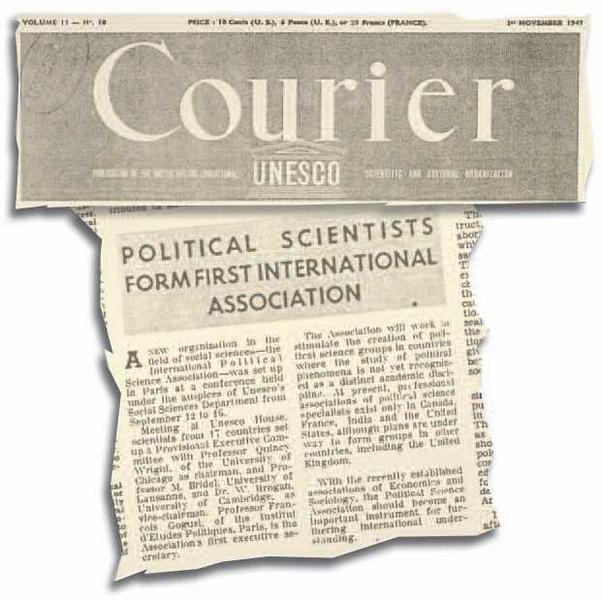
The first article about the creation of IPSA, published in the UNESCO Courier in November 1949.
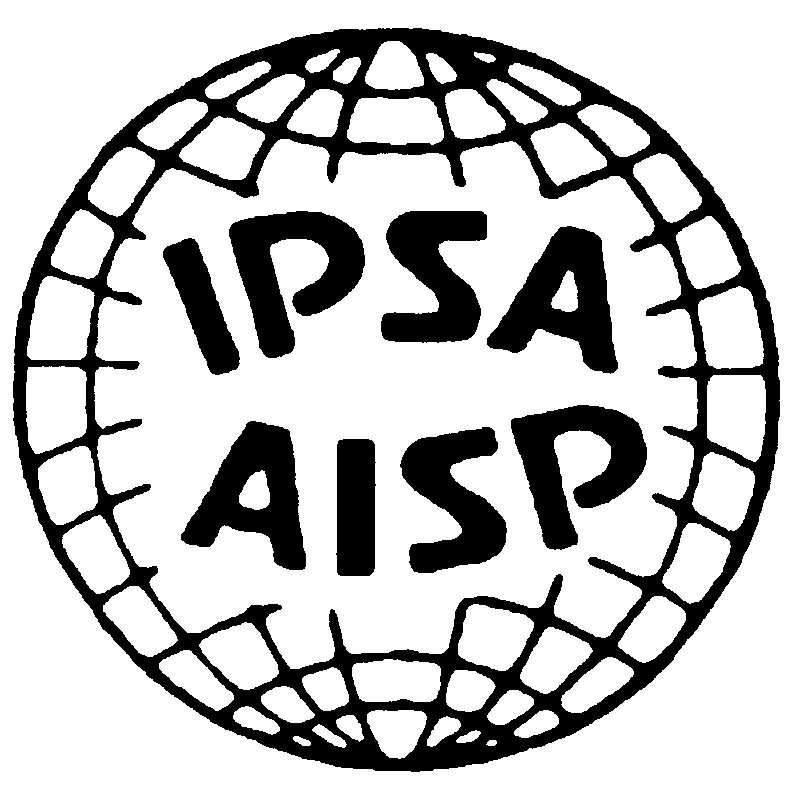
IPSA's First Logo

IPSA Letterhead used in the 1980's
Since its first World Congress of Political Science in Zürich in 1950, IPSA has organized 25 successful World Congresses and numerous conferences across the world and more than 25,000 people attended these international events.

7th IPSA World Congress - Brussels, 1967

11th IPSA World Congress - Moscow, 1979

20th IPSA World Congress - Fukuoka, 2006
Today, IPSA publications, International Political Science Review and International Political Science Abstracts, as well as the IPSA Portal, seek to meet the needs of political scientists in different parts of the world. IPSA also organizes various Summer Schools for students and young researchers in collaboration with prominent universities and offers free IPSAMOOC - Massive Open Online Course - on its website.

A Roundtable Discussion Organized by IPSA - Tokyo, 1982

IPSA Celebrated the 10th Anniversary of the Establishment of its Permanent Secretariat in Montréal - 2016

IPSA's first virtual conference, The UN at 75: Challenges and Prospects for the Future of Multilateralism, was organized from 19-21 October 2020 to commemorate the 75th anniversary of the founding of the United Nations. You can view the complete session videos on the conference page.
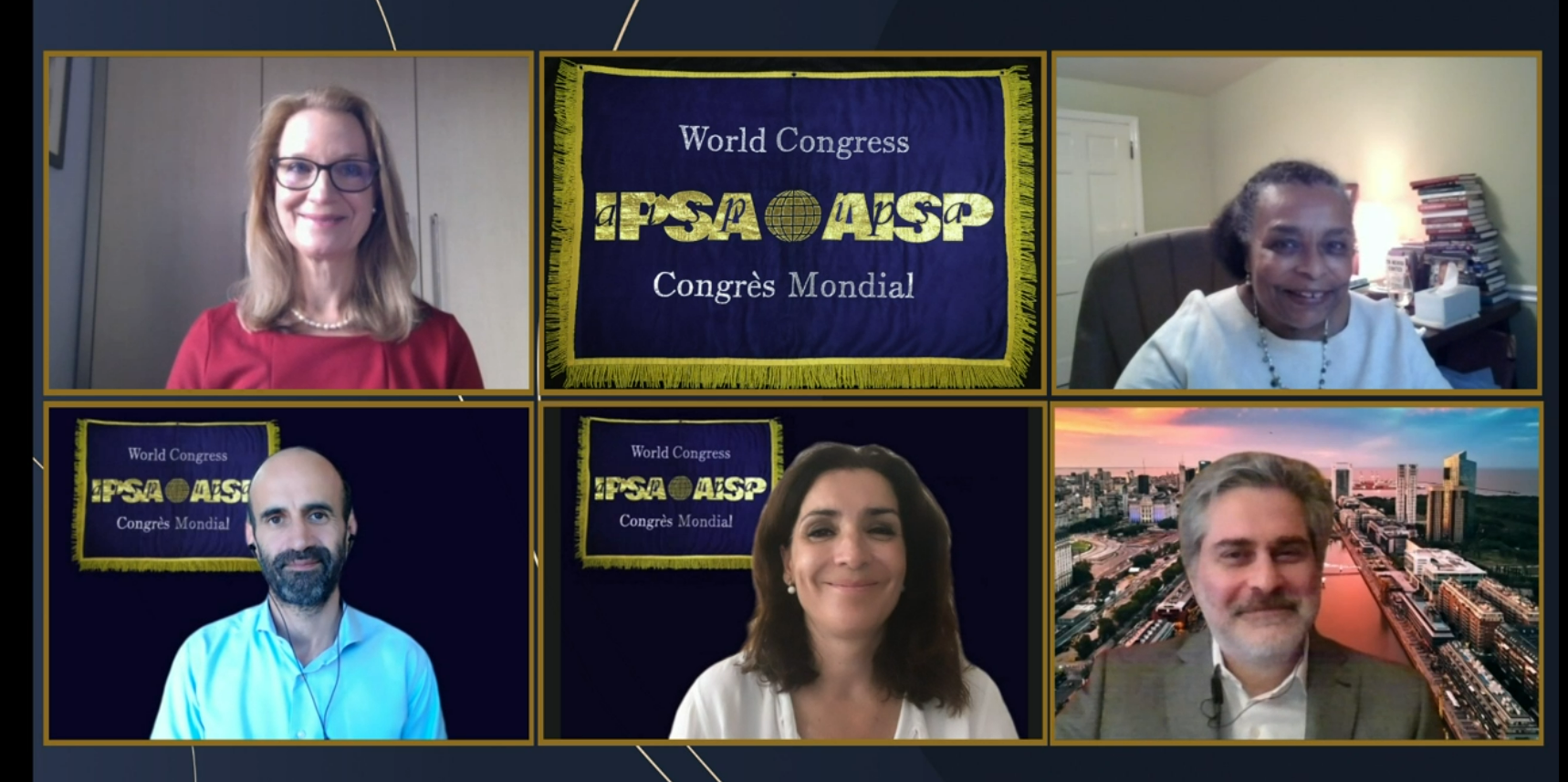
The first virtual IPSA World Congress was held from 10-15 July 2021 and had 2,760 participants and became the second most attended event in the history of the Association, after the 2012 World Congress in Madrid. To access the daily highlights and selected session videos, please visit the Congress page.

IPSA organized the Open-Access Publishing: A New Era in Scholarly Communication conference onsite at Concordia University in Montreal and virtually from 13-14 September 2022 to contribute to the future of scholarly publishing. You can view the complete session videos on the conference page and access the conference photos on our Flickr account.

IPSA published its first open-access book, Does the UN Model Work? Challenges and Prospects for the Future of Multilateralism in 2022. Edited by Kim Fontaine-Skronski, IPSA Executive Director, Valériane Thool, Lecturer in International Law at the University of Sherbrooke, and Norbert Eschborn, Director of the Konrad Adenauer Foundation in Canada, the book is composed of original articles from scholars and policy notes from practitioners based on the contributions to the Conference “The UN at 75: Challenges and Prospects for the Future of Multilateralism”. Read this open-access book here.

The 2023 IPSA World Congress, held in Buenos Aires from July 15-19, proved a great success, with 3,096 registered participants from 102 countries.To access the daily highlights and selected session videos, please visit the Congress page.
We are proud that IPSA has successfully accomplished its mission of creating a global, inclusive political science community, which today counts 61 national and regional associations, over 81 institutional members, and more than 4,000 individual members.
Invitation to partner with IPSA on the Challenges and New Directions in Multi-Level Governance Conference
The Challenges and New Directions in Multi-Level Governance conference is an opportunity to network with prominent scholars, international associations, NGOs, and students. Promote your institution or organization, support your brand and maintain a high profile among delegates.
The following opportunities exist for sponsorship and advertising. For more information, please consult the Sponsorship & Visibility Kit (button below) or contact Haluk Dag at exhibition@ipsa.org.
Summary of Products (all prices are in USD)
SPONSORSHIP OPPORTUNITIES
| Gold Sponsorship Package | $5,000 |
| Silver Sponsorship Package | $3,000 |
| Bronze Sponsorship Package | $2,000 |
| Contribution to Travel Grants | $1,000 |
| Conference Keynote Session | $500 |
ADVERTISEMENT OPPORTUNITIES
| Promotional email to conference delegates and IPSA members | $1,000 |
| Banner on the IPSA website for 30 days | $750 |
| Onsite exhibition table | $500 |
| Newsletter Banner Advertisement | $250 |
| Video ads | $300 or $200 |
PAYMENT
Payment with Credit Card: Fill out the IPSA Advertisement Payment Form to complete your booking.
Payment with Wire Transfer: Fill out the IPSA Advertisement Purchase Order Form to receive an invoice.
Call for Volunteers | 12 March 2024 - 9 April 2024
The International Political Science Association (IPSA) is currently seeking dynamic volunteers willing to contribute to IPSA’s 75 Anniversary Conference in Montreal. Volunteers are accepted from all academic backgrounds. To apply, please fill out the Volunteer Application Form by 9 April 2024.
The volunteer application is now closed.
Requirements
- Volunteers must be available for the entire duration of the conference on 25-26 April 2024.
- Thursday, 25 April 07:30 – 19:00
- Friday, 26 April 07:30 – 17:30
- The official languages of IPSA are English and French. Volunteers must be proficient in English. Knowledge of any other language is a plus.
- Volunteers must be available for a 30-minute online information session on 24 April 2024 at 12:00.
Benefits
All volunteers will receive:
- A volunteer certificate from IPSA;
- Lunch on each day;
- Access to the welcome reception on 25 April;
- Complimentary one-year IPSA membership.
Volunteer Positions (10 volunteers)
- Welcome and Registration: These volunteers will be placed at key locations at Concordia University to direct participants and at the registration desk to process registration of participants. They will also be helping participants with general inquiries. The volunteers will have a good knowledge of the program and logistical information.
- Room Attendants: These volunteers will assist with loading up presentations and minor AV needs in the panel rooms. Badge monitoring may be required.
- Social Media: These volunteers will be asked to attend Opening & Closing ceremonies and select panels to take notes. Volunteers will be required to submit a brief summary (2 paragraphs max.) for each event by 18:00. Strong English skills and a background in communications/journalism or political science are an asset.
Important Dates
12 March 2024 Call for volunteers opens
09 April 2024 Volunteer application deadline
11 April 2024 Volunteer confirmations
24 April 2024 Volunteer briefing 12:00-12:30





